A lot of people of people young and old, male and female, are looking for cures for puffy eyes that really work.
I will occasionally wake up with puffy eyes during allergy season. I am lucky enough that my allergies are not severe. And the better my health is getting, the less I am reacting to my environmental allergies.
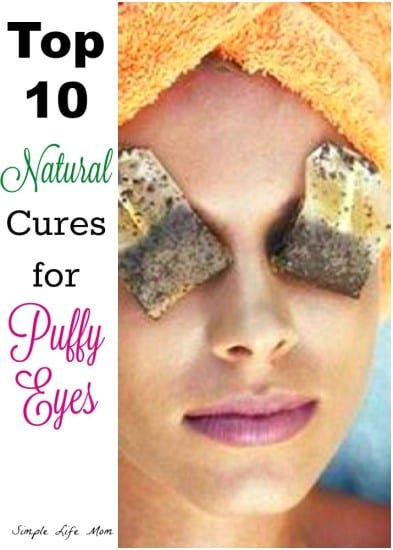
Puffy eyes can occur for a number of reasons:
- Obviously, if you’ve been crying your eyes will be puffy…if that’s your reason, then I’m sorry 🙁
- If you have a cold and your sinuses are congested
- If you have allergies you can especially wake up with puffy eyes, though you can get them throughout the day
- If you have not slept well (or didn’t go to bed until super late) you can have “bags” under your eyes and they may be puffy.
- Poor diet
- Stress
- Constant makeup application around the eye and rubbing of the eyes for one reason or another
- And probably as many reasons as there are people. i.e. everyone is different and it could be a combination of many things
There are many ways to combat these problems:
The first and most important:
- If you’re crying, try to stop 😉 (Seriously though, ask Jesus for help. I’d be glad to pray for you too.)
- GET SLEEP – I seriously stay up too late reading on my kindle, but it’s just a wonderful peaceful time.
- Eat Good Real Food – cut back on the junk. Make commitments to yourself and your family and make goals for one step at a time and you’ll be surprised at how far you can get in just a few months.
- Hydration – this is HUGE! You may think, no I’m retaining water, but drinking enough filtered water will help your body cleanse and will help your overall health greatly. I think it’s said that you should drink 1/2 oz of water per day per pound of weight. So if you weigh 120lbs you should be drinking 60-oz water each day, etc. Caffeine causes us to lose water so make up for that if you drink caffeine.
- De-stress – I know, it’s easier said than done. Prioritize and Pray, The 2 big Ps for de-stressing!
- Allergies? Hydration, a good diet, and good sleep helps amazingly! Give your body what it needs and you’re not so worn down and effected by allergies.
Some Don’ts:
- Please don’t smack or rub your already irritated eyes. That only damages your skin worse.
- Don’t pile on the makeup. It doesn’t help and makes you look kind of funny.
- Don’t use preparation H. That is a remedy that’s been going around for some time and it’s so bad for you! It’s mainly petroleum (not good for our skin!), mineral oil (a petrol by-product), and Phenylephrine HCl (comes with some crazy serious side effects.
Top 10 Cures for Puffy Eyes
Oh yes, there’s an essential oil for that. And yes, I say there’s an essential oil for everything, but hey – I figure that God put things on earth for us to discover and use appropriately. It’s always better to use something healthy and natural before going to anything synthetically made that has the potential to harm us in the long run.
#10 Cucumbers
Cucumbers have astringent properties that help to reduce inflammation. They work pretty good, but not as good as the potatoes (in my opinion). They are not higher on the list because I don’t have cucumbers sitting around for this purpose or the time to sit with them on my eyes.
#9 Potato Juice
If you have a juicer, juice up some potatoes, soak a cloth in the juice, and place over your eyes for 10 minutes. If you don’t have a juicer, grate a potato (surprisingly not that difficult to do) and put it in a thin cloth and place over your eyes. Potato juice is anti-inflammatory. We’ve used it for stomach problems as well as headaches. The reason it is low on my list is that I don’t have a juicer and it’s time consuming to grate the potato and then leave it on your eyes. Otherwise, it is an option that works.
#8 Tea Bags
You’ve probably heard that you can put a tea bag on a puncture wound to stop the bleeding or a hole where a tooth was pulled. This is because the tannins present in the tea leaves have an astringent and anti-inflammatory property. The same can be used on your eyes. Dip two tea bags in warm water, squeeze excess water out of the bag, and place them on your eyes for 5-10 minutes.
#7 Cold Spoons
Yes, something you’ve probably seen in a magazine or movie at some point, but the coldness of the metal really gives relief and soothes irritated eyes. Place 4 spoons in the fridge at night. In the morning when your eyes are puffy, get 2 out and place them on your eyes. When they get warm, switch them out with the others from the fridge.
#6 Witch Hazel
Witch hazel really makes my face feel awake and ready to go. I use it every morning now before putting on my anti-aging serum. Witch hazel is an astringent like the potato juice and cucumber juice, but I don’t have to sit around blind for a while. I can just put it on and go. It’s one of the main ingredients, along with rose water, in my natural skin toner.
Essential Oil Use
Learn about essential oils before using them. Some should not be used with certain illnesses, or when you are pregnant or nursing. Some, like eucalyptus listed below, should not be used on small children (dangerous change in heart rhythms detected). They are serious business and should be treated so. Rule of thumb – dilute at 1% ratio (3 drops for each half ounce (15ml) of carrier oil. There are times I use stronger ratios, there are also some oils I can use neat, but I do a lot of research before doing so. Always do a patch test (test on your wrist) first.
#5 Bergamot Essential Oil
Yes, the rather inexpensive bergamot is up on the list for anti-inflammatory oils. It is listed in a few studies (1 mentioned below) for its great properties. To use, dilute and apply carefully below eyes. You can get some high quality bergamot oil here.
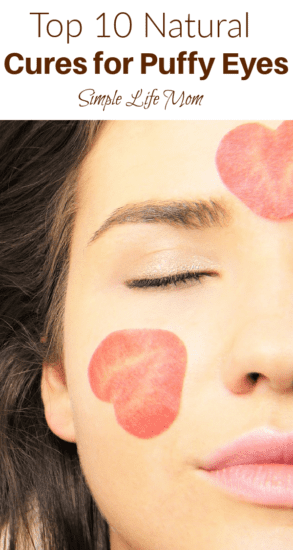
#4 Rose Essential Oil
Rose Essential Oil is wonderful for mood, senses, and inflammation! A Win Win! It is not higher on this top 10 list because of its price. You can buy some non-diluted here HERE or diluted HERE. Either way it needs to be diluted before you use it.
#3 Eucalyptus Essential Oil
I love the way eucalyptus oil smells! I have met someone who didn’t like it, so to each their own. But it’s one of the oils I use along with tea tree and rosemary during the winter months when we have colds. It is anti-inflammatory, relatively inexpensive, and can be used without being diluted IF you test it first and find that your skin is not sensitive to it. Please test it first and do not use on children. You can find some high quality Eucalyptus oil here.
#2 Frankincense Essential Oil
Though Thyme is number 1, Frankincense is my personal favorite. I love the smell; it seems calming and rejuvenating at the same time. It is known to cleanse; so that if you place it over lymph nodes it will help drain them and cleanse them. This same idea happens around your eyes. Whenever I’m having a “bad face day” this is my go to for some pick me up. You can find some great Frankincense oil here.
#1 Thyme Essential Oil
The Journal of lipid Research in a 2010 study found Thyme to be the most effective essential oil against inflammation caused by COX-2 (1) As you can see, fennel and clove had an effect as well. I do not use clove and fennel due to their estrogen effect, but I love thyme, rose, eucalyptus, and bergamot. Although lavender, lemon, sesame, olive, etc were also tested, I wish that more oils known for their anti-inflammatory properties were involved in the test as well.
To use Thyme, dilute as 1% in your carrier oil and apply below eyes, careful not to get it in your eyes. Thyme does have a property that can build in your system over time so it is not one to use every day, but using occasionally is fine. You can find high quality Thyme oil here.


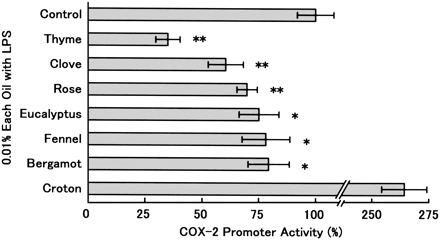

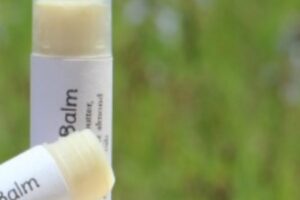


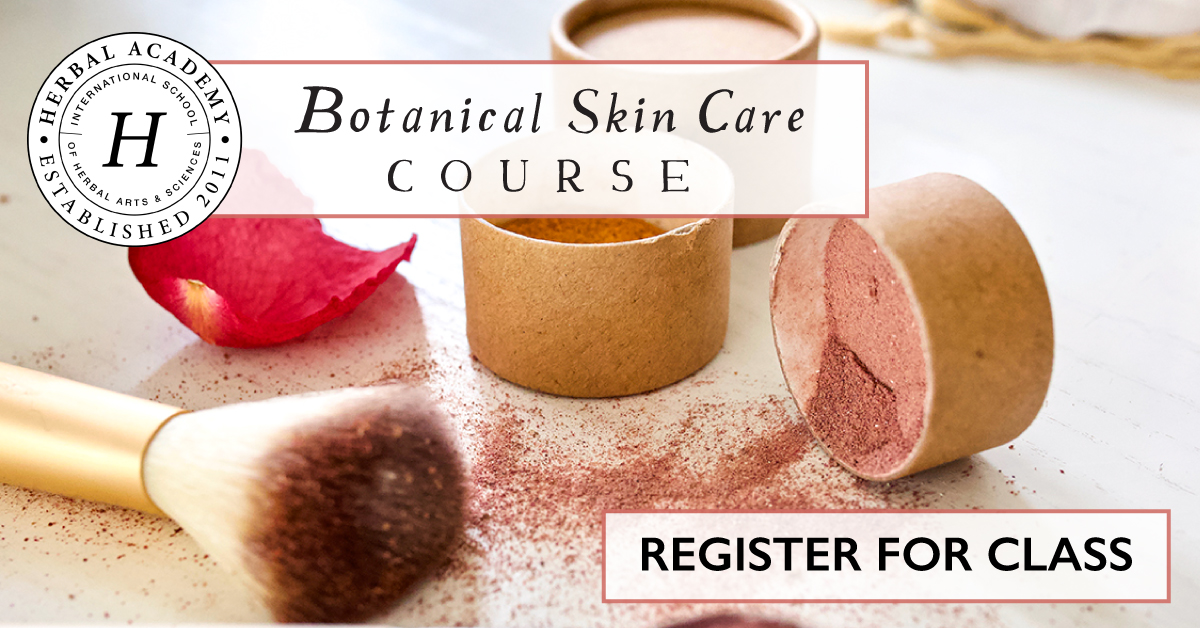
23 Comments
Leave your reply.